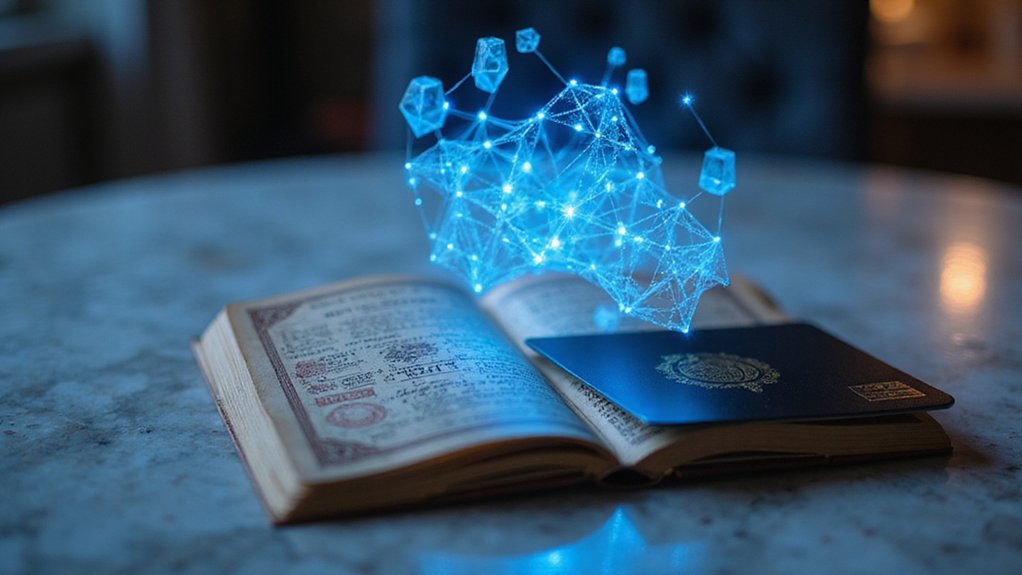While traditional education systems lumber along with paper transcripts and one-size-fits-all curricula—relics that would make a medieval scribe feel at home—artificial intelligence and blockchain technologies are orchestrating what can only be described as the most significant transformation in learning since Gutenberg decided books shouldn’t require monks.
The global EdTech market, careening toward $404 billion by 2025, represents more than mere growth; it signals the complete dismantling of educational infrastructure that has remained stubbornly unchanged for centuries.
AI’s personalization capabilities have moved beyond buzzword territory into tangible results, with algorithms now tailoring content to individual learning styles while providing real-time feedback mechanisms that would embarrass most human tutors.
AI algorithms now deliver personalized learning and instant feedback that outperform most human tutors with embarrassing ease.
These adaptive platforms adjust difficulty dynamically, supporting diverse paces and enhancing inclusion—concepts that traditional lecture halls handle with all the grace of a freight train steering through ballet class.
The 16.3% compound annual growth rate in AI educational tools since 2019 suggests investors recognize what educators have long denied: standardized approaches are educational malpractice. Education leaders increasingly embrace AI-powered data-driven decision-making to optimize resource allocation and personalize learning experiences.
Blockchain technology addresses the credential verification circus that has plagued institutions for decades.
Tamper-proof, transparent records eliminate the absurd scenario where employers spend weeks verifying degrees that students earned years ago.
Decentralized systems empower learners with data ownership while reducing fraud—particularly essential as micro-credentials and non-traditional pathways gain legitimacy. This decentralized consensus mechanism creates economic barriers that protect transaction history, making educational fraud nearly impossible while ensuring credential authenticity.
The seamless global mobility this enables makes previous transfer credit negotiations look like diplomatic summits.
The workforce alignment revolution proceeds with AI identifying skill gaps and tailoring upskilling programs with precision that makes traditional career counseling appear charmingly quaint.
Work-integrated learning models, supported by AI insights, create scalable pathways from education to employment—a connection that conventional systems have struggled to establish despite centuries of practice.
Immersive technologies like VR and AR, combined with microlearning modules, create educational experiences that actually engage learners rather than inducing the coma-like states perfected in traditional classrooms.
These bite-sized, AI-driven formats improve retention while blockchain securely tracks micro-credentials earned through immersive learning.
Legacy systems, with their manual grading and administrative bureaucracies, face obsolescence as automated AI reduces workloads while blockchain decentralizes control. AI chatbots provide continuous student support, handling inquiries around the clock without the limitations of traditional office hours.
This systemic overhaul enables alternative education pathways beyond traditional degree models, finally offering unmatched access to quality learning.






